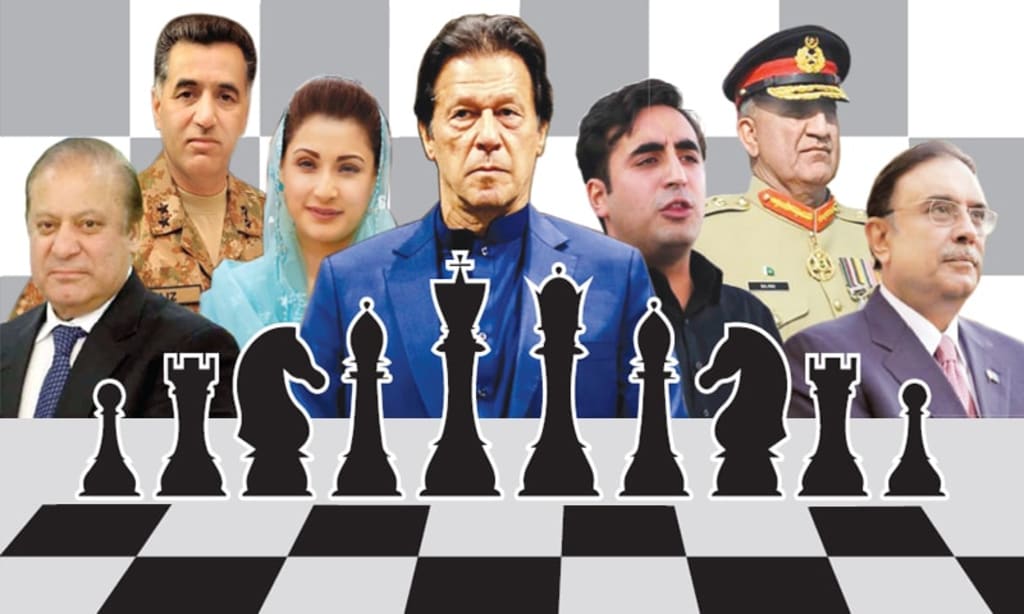Unraveling the Dynamics of Pakistani Politics
A Current Assessment

Pakistani politics has long been a subject of intrigue and scrutiny both within the country and on the international stage. As the world witnesses the unfolding of political events, it is crucial to examine the current landscape of Pakistani politics and understand the dynamics shaping its trajectory. This article aims to provide a comprehensive analysis of Pakistani politics, taking into account recent developments, key actors, and challenges faced by the nation.
Democratic Transition:
Pakistan has witnessed a significant democratic transition over the past decade. The 2018 general elections marked the first peaceful transfer of power from one civilian government to another in the country's history. The Pakistan Tehreek-e-Insaf (PTI) party, led by Prime Minister Imran Khan, emerged victorious, promising to address corruption, economic challenges, and social inequalities.
Imran Khan's Government:
Imran Khan's government has faced numerous challenges since assuming office. Economic stability has been a key concern, with inflation rates soaring and a balance of payment crisis threatening the nation's financial stability. The government has implemented structural reforms, sought foreign aid, and engaged with international financial institutions to stabilize the economy. However, these measures have faced criticism for their impact on the common populace.
Civil-Military Relations:
Pakistan's civil-military relations continue to play a significant role in shaping its political landscape. Historically, the military has exerted considerable influence over political affairs, often leading to military coups and periods of military rule. While Pakistan remains a democracy, there are concerns about the military's role in decision-making processes, particularly in matters of national security and foreign policy.
Opposition and Challenges:
Opposition parties play a vital role in holding the government accountable and shaping policy discourse. The major opposition parties include the Pakistan Muslim League-Nawaz (PML-N) and the Pakistan People's Party (PPP). Both parties have raised concerns about alleged electoral rigging, economic mismanagement, and the government's failure to deliver on its promises. These opposition parties have organized protests and engaged in political maneuvering to challenge the ruling PTI government.
Regional Dynamics and Foreign Policy:
Pakistan's foreign policy is shaped by its regional dynamics, particularly its relationships with neighboring countries such as India, Afghanistan, and China. Tensions with India over the Kashmir dispute and cross-border terrorism have persisted, affecting regional stability. The situation in Afghanistan and the withdrawal of foreign forces have implications for Pakistan's security and stability. The China-Pakistan Economic Corridor (CPEC) remains a significant foreign policy initiative aimed at enhancing economic cooperation and connectivity between the two countries.
Socio-Political Challenges:
Pakistani society faces various challenges, including poverty, illiteracy, gender inequality, and religious extremism. These challenges have political implications, as they influence policy priorities, social cohesion, and the overall stability of the country. Tackling these issues requires a multi-dimensional approach, combining political will, economic reforms, and social interventions.
Media and Freedom of Expression:
The media landscape in Pakistan has seen both progress and challenges. While media outlets have become more vibrant and assertive, there have been concerns about press freedom and the stifling of dissent. Journalists and activists face threats, harassment, and censorship, which impact the quality of political discourse and accountability.
Conclusion:
Pakistani politics today is a complex web of challenges and opportunities. The country's democratic transition, economic stability, civil-military relations, regional dynamics, and socio-political challenges collectively shape the political landscape. As Pakistan moves forward, it is essential for political actors, civil society, and the international community to support democratic institutions, foster inclusive governance, and address the socio-economic needs of the population. Only through such efforts can Pakistan achieve political stability, economic prosperity, and social cohesion in the years to come.
Best Wishes For Imran Khan and Pakistan!
About the Creator
SaQiB Naqvi
I'm on a mission to uncover my innermost thoughts and feelings.
Enjoyed the story? Support the Creator.
Subscribe for free to receive all their stories in your feed. You could also pledge your support or give them a one-off tip, letting them know you appreciate their work.






Comments
There are no comments for this story
Be the first to respond and start the conversation.